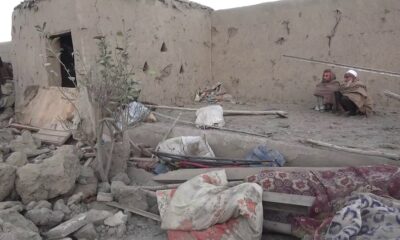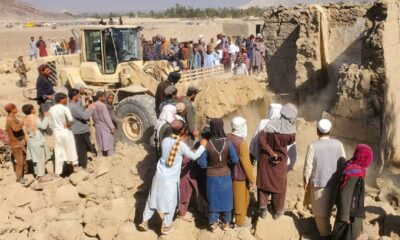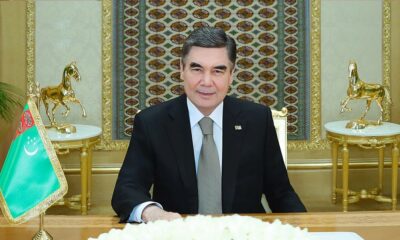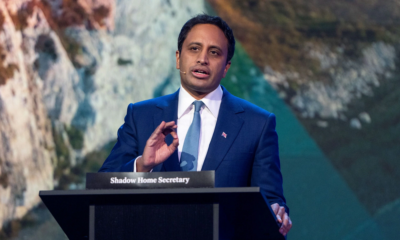Business
US issues new general license on Afghanistan financial transactions
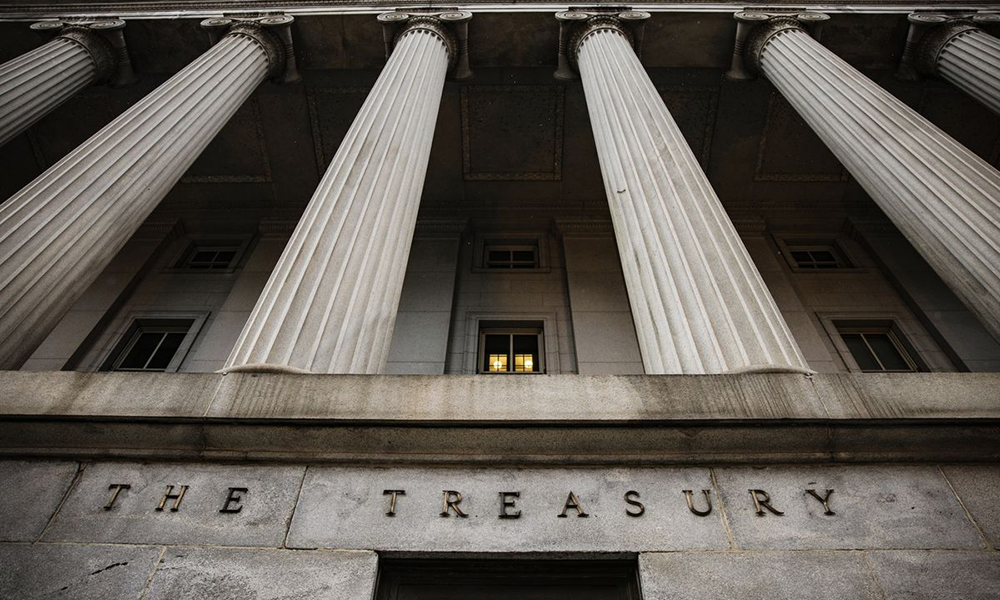
The US Treasury on Friday issued a new general license allowing international aid organizations and private firms to conduct commercial and financial transactions with Afghan government institutions.
The new license represents a shift in US policy that had impeded ordinary commerce with Afghan government agencies headed by US sanctioned Islamic Emirate of Afghanistan (IEA) and Haqqani Network leaders since they came into power in August, Reuters reported.
The new license maintains prohibitions on transactions with sanctioned leaders and other blocked individuals and excludes transfers of luxury items.
The license makes clear “that while sanctions on the Taliban (IEA) remain in place, this action facilitates the private companies and aid organizations working with governing Afghan institutions and paying customs duties, fees and taxes,” a senior administration official told reporters on a conference call.
The new license is part of what US officials said are ongoing US efforts to help contain an economic collapse that quickened in August when Washington and other donors cut financial aid underpinning 75 percent of Afghanistan’s public spending.
“Our action today recognizes that in light of this dire crisis, it is essential that we address concerns that sanctions inhibit commercial and financial activity,” Deputy Treasury Secretary Wally Adeyemo said in a statement.
The license, signed and published by the US Treasury Department on Friday, stated: “Authorizing Transactions Involving Afghanistan or Governing Institutions in Afghanistan (a) To the extent authorization is required and except as provided in paragraph (b) of this general license, all transactions involving Afghanistan or governing institutions in Afghanistan prohibited by the Global Terrorism Sanctions Regulations, 31 CFR part 594 (GTSR), the Foreign Terrorist Organizations Sanctions Regulations, 31 CFR part 597 (FTOSR), or Executive Order (E.O.) 13224, as amended, are authorized.”
The Office of Foreign Assets Control (OFAC) of the US Department of Treasury explained that the new license, GL 20, “authorizes financial transfers to or involving all governing institutions in Afghanistan — including but not limited to the DAB (Central Bank), Ministry of Education, Ministry of Energy and Water, Ministry of Finance, Ministry of Agriculture, Irrigation, and Livestock, and Ministry of Public Health — or to or involving state-owned or -controlled companies and enterprises in Afghanistan, including Da Afghanistan Breshna Sherkat (DABS), provided there are no financial transfers to the Taliban (IEA), the Haqqani Network, any entity in which the Taliban (IEA) or the Haqqani Network owns, directly or indirectly, individually or in the aggregate, a 50 percent or greater interest, or any blocked individual who is in a leadership role of a governing institution in Afghanistan,”
Examples of activities authorized by GL 20 includes “commercial transactions involving Afghanistan, including imports from Afghanistan, exports to Afghanistan, and commercial transactions within or involving the geographical territory of Afghanistan.”
It also includes “dealings with state-owned or -controlled companies and enterprises in Afghanistan, including the electrical utility Da Afghanistan Breshna Sherkat (DABS).”
Other inclusions are as follows:
- Payment of taxes, fees, or import duties, or the purchase or receipt of permits, licenses, or public utility services, provided that such payments do not relate to luxury items or services;
- Financial institutions’ processing of transactions to, from, or transiting Afghanistan, including clearing, settlement, and transfers through, to, or otherwise involving privately owned and state-owned Afghan banks;
- Financial and professional services related to economic activity in Afghanistan;
- Activities related to infrastructure maintenance or development in Afghanistan, including water, sanitation, energy, electricity, and public utilities;
- Activities related to the development, maintenance, and operation of civilian transportation in Afghanistan, including safety and maintenance operations for civilian transportation in Afghanistan, including air traffic services, air navigation services, other transactions ordinarily incident and necessary to operations or use of airports, ground and landside operations, and rail or road construction or maintenance;
- Transactions with respect to the receipt and transmission of telecommunications, mail, or parcels involving Afghanistan;
- Importation from and exportation to Afghanistan of any information or informational materials;
For the full explanation CLICK HERE
Business
Pakistan allows re-export of stranded Afghan transit cargo
The suspension of Afghan Transit Trade operations left thousands of containers stuck, causing heavy financial losses for Afghan traders and disrupting regional commerce.

Pakistan’s Federal Board of Revenue (FBR) has allowed the re-export of Afghan transit trade consignments that had been stranded for months at Chaman and Quetta, enabling their movement to Karachi Port and Port Qasim.
The shipments were halted after crossings between Afghanistan and Pakistan were closed in October 2025 amid escalating security tensions.
The suspension of Afghan Transit Trade operations left thousands of containers stuck, causing heavy financial losses for Afghan traders and disrupting regional commerce.
Under the new directive, stranded goods will be transported under customs supervision to Karachi for re-export. Pakistani authorities said the process will follow strict monitoring and inspection procedures to ensure compliance with transit regulations.
The decision offers limited relief to Afghan businesses affected by the prolonged disruption, though regular trade between the two countries has yet to resume.
Business
Afghanistan’s 2026 Development Framework meeting highlights self-reliance and economic stability
The Ministry said these measures helped preserve relative economic stability and deliver stronger economic growth compared with the previous year.
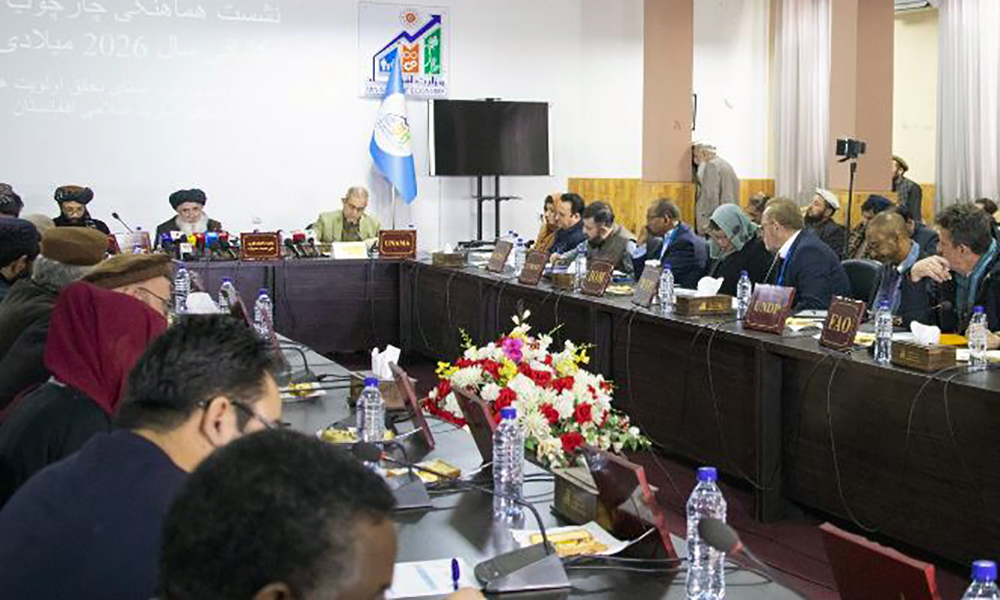
The Ministry of Economy of Afghanistan says a coordination meeting on the United Nations’ 2026 Development Framework for Afghanistan was held under the chairmanship of Qari Din Mohammad Hanif, Minister of Economy, focusing on advancing national development priorities and long-term economic stability.
The meeting was attended by representatives from the Ministry of Foreign Affairs, the United Nations Assistance Mission in Afghanistan (UNAMA), heads of UN agencies operating in the country, delegates from the European Union, and a range of international organizations.
During the session, the Minister of Economy outlined Afghanistan’s current situation, recent achievements, and key economic priorities, while expressing appreciation for the continued support of international partners during challenging years.
According to the Ministry, Afghanistan faced severe economic, social, and climate-related pressures in 2025.
These included the impacts of climate change and natural disasters, the forced return of more than two million Afghan migrants from neighboring countries, ongoing sanctions, frozen foreign reserves, and a sharp decline in development and humanitarian assistance. Together, these factors have significantly affected the livelihoods of vulnerable communities.
Despite these challenges, the Islamic Emirate has implemented a series of economic and development programs centered on prudent policymaking and national priorities.
The Ministry said these measures helped preserve relative economic stability and deliver stronger economic growth compared with the previous year.
Improved economic governance, support for domestic production and the private sector, exchange rate stability, export growth, national infrastructure projects, inflation control, and increased domestic revenues were cited as key contributors.
The Ministry also highlighted the role of the United Nations in addressing urgent humanitarian needs, noting that UN assistance has been critical in responding to climate impacts, supporting migrants and returnees, strengthening food security and livelihoods, delivering basic health services, and reducing overall human suffering.
Data from the Ministry of Economy show that around $1.009 billion in international assistance was allocated to Afghanistan in 2025 across various sectors, with approximately $590 million earmarked for project expenditures. However, figures from the UN Office for the Coordination of Humanitarian Affairs indicate a significant drop in humanitarian funding, with only 36 percent of the $2.4 billion required having been secured.
The Ministry emphasized that sustainable economic stability can only be achieved through self-reliance, growth-driven economic policies, and constructive engagement with the international community.
Afghanistan’s Development Strategy, a long-term framework developed under the leadership of the Economic Deputy of the Prime Minister and coordinated by the Ministry of Economy, aims to promote balanced development, job creation, poverty reduction, infrastructure expansion, private sector support, and environmental protection.
Business
Afghan delegation visits Belarus to strengthen economic and industrial ties
The delegation also visited major state and industrial enterprises, including, the State Chemical Service, and agricultural farms under the Ministry of Agriculture.
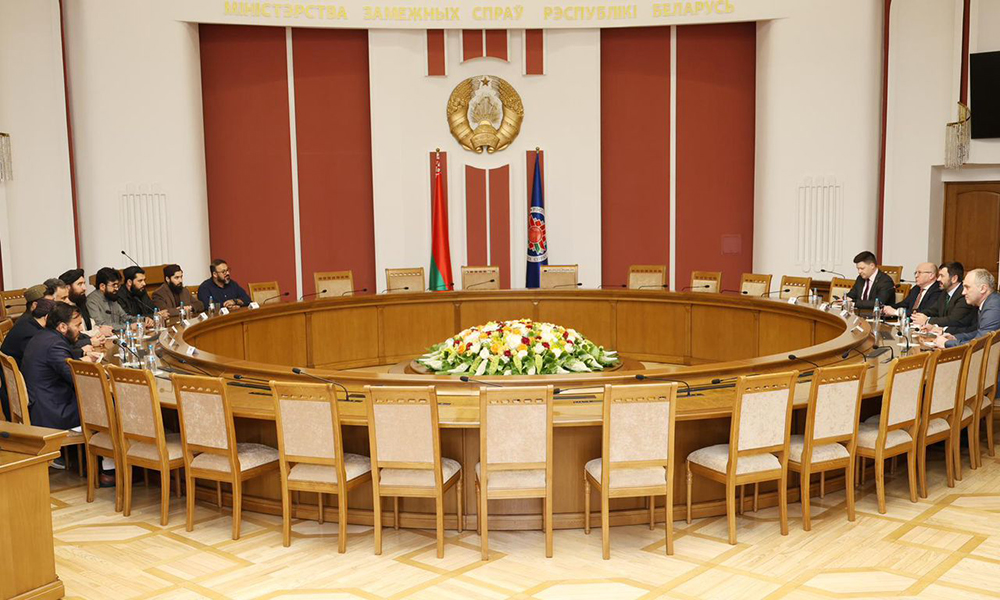
A high-level delegation from the Islamic Emirate of Afghanistan, led by Ahmad Jan Balal, head of the Emirati Companies, and Abdul Rahman Atash, CEO of the National Development Company, accompanied by representatives from the Ministry of Foreign Affairs and technical teams, visited Belarus to advance bilateral cooperation.
According to Nabiullah Arghandiwal, spokesperson for the National Development Company, the Afghan delegation held meetings with officials from Belarus’ Ministries of Foreign Affairs, Agriculture, and Industry to discuss political, economic, and trade-related issues.
The delegation also visited major state and industrial enterprises, including, the State Chemical Service, and agricultural farms under the Ministry of Agriculture.
Arghandiwal added that both sides agreed to strengthen and expand technical collaboration in the fields of industry, agricultural machinery, construction materials, food safety, public health, and education, aiming to enhance long-term economic and industrial partnerships between the two nations.
give me english hashtags with coma in between the words
-
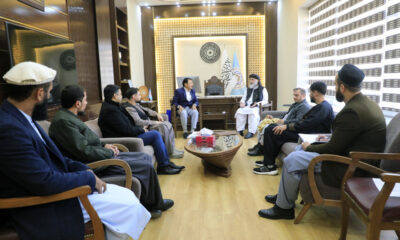
 Latest News4 days ago
Latest News4 days agoAfghanistan welcomes investment and technology partnerships with India
-

 Sport4 days ago
Sport4 days agoAfghan Peaks founder climbs Aconcagua to promote Afghanistan’s mountain potential
-

 Latest News3 days ago
Latest News3 days agoIndian customs seize Chinese walnuts falsely declared as Afghan
-

 Business4 days ago
Business4 days agoPakistan allows re-export of stranded Afghan transit cargo
-
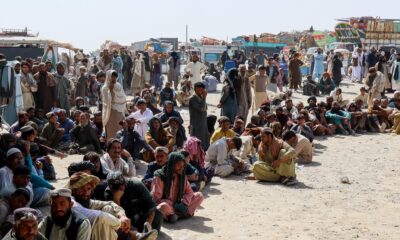
 Latest News3 days ago
Latest News3 days agoPakistan’s Punjab to send home 20 more Afghans in repatriation drive
-

 Latest News4 days ago
Latest News4 days agoPakistan signals possible air strikes as Kabul releases Pakistani soldiers in goodwill move
-
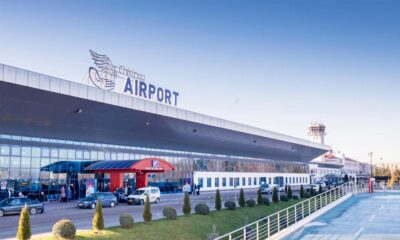
 Latest News2 days ago
Latest News2 days agoMoldova bans Afghan airlines over safety concerns
-
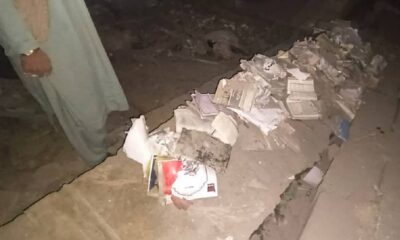
 Latest News1 day ago
Latest News1 day agoAfghanistan vows retaliation after Pakistan launches air strikes


